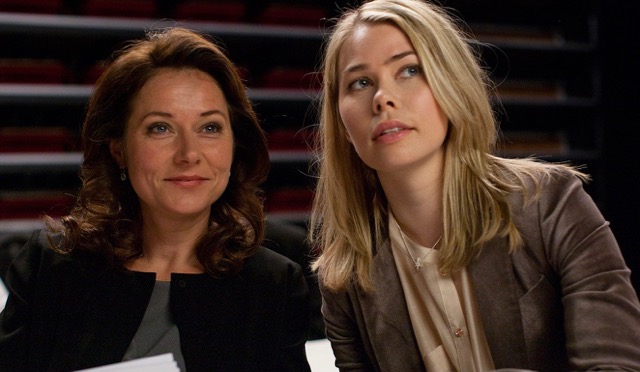https://www.merlinsilk.com/neologism/ Borgen
Adam Price, Jeppe Gjervig Gram and Tobias Lindholm (2010-2013)
https://www.petwantsclt.com/petwants-charlotte-ingredients/ Facts for You:
Where to Watch: Streaming on Netflix
https://www.petwantsclt.com/petwants-charlotte-ingredients/ Length: 3 seasons of 10 episodes each
Tramadol Purchase Canada Names You Might Know: How well do you know Danish actors?
Language: In Danish with subtitles
She Said: When Netflix serves me a foreign-language television series, I’m all ears and eyes because of how completely sucked in I have been all year to such series on any platform—Trapped, Bron/Broen, The Beforeigners, Tehran, etc. Somehow, the Netflix algorithm knows about my Covid-isolated psyche and how much I miss all the trips we were going to take this year, and so it gives to me these substitutes, which I cling to like my online-shopping-tracking apps at Christmas.
But not many scenes into this show, I started to doubt myself and the algorithm (well, mostly the algorithm). Clearly it was an inside look at Danish parliamentary politics, and while the lead was an engaging character, well-acted by a believable and appealing Scandinavian actor, how much did I care about the intricacies of a system I don’t understand except in the broadest of strokes? I always like seeing European cities I’ve traveled to and hearing another language, but I was afraid much of the drama would escape me without more context. I was wrong.
Not long after the inklings of doubt sprouted in my mind between subtitle screens, the unexpected occurs in dramatic Copenhagen scenes that hooked me then and there for the rest of this episode and 29 more: The ripples of an incident in the (private) personal life of TV1 reporter Katrine Fønsmark, who seeks help from ex-boyfriend Kasper Juul, who just happens to be the current “spin doctor” for a minor centrist party leader, Birgitte Nyborg Christensen, are immediately felt through the halls of power in Christiansborg Palace, or “Borgen,” how Danes refer to the political center of their nation. The series follows these three characters and those close to them throughout its three seasons, and I was so grateful to get to be led along.
First, I loved the focus on a woman leader. Nyborg, who is played by beloved and highly respected Danish actor Sidse Babett Knudsen, is idealistic, driven, ambitious, self-assured andself-doubting, charismatic at crucial times as well as unable to see the obvious when it matters most to her marriage and family. In the first episodes, she rises to the top of the political shuffle after a close general election partly by speaking plainly and truthfully in a television debate in which the leading male rivals are focused on taking each other out quite effectively. She goes home to her husband and children and worries about her clothes being too tight to look good on TV. She struggles with her obligations—when she’s at home, she works, and when she’s at work, she dodges personal commitments and pays the price for doing so—but not in a cliché or tired “this is probably how women feel as imagined by male show creators” kind of way.
Also, I loved that Birgitte Nyborg and all the characters that fill any of the series’s regular roles are complex individuals, and the 30 episodes of Borgenfollow Nyborg’s complexities as well as the intersecting triumphs and tribulations of Fønsmark and Juul (played by Birgitte Hjort Sørensen and Pilou Asbækas, respectively), the large and small stakes of national politics and the noisy and quiet battles of personal relationships, both in the halls of government and at home. By focusing on the individuals at the heart of a very singular, foreign situation, the show becomes less local to Denmark and much more exportable to our living rooms.
Finally, the people became very, very real to me. Maybe it was because I was listening to them speak while reading the subtitles that made their words feel so much more a part of my own experience, or the fact that much like a play, there is so much talkingas characters seek to justify, cajole, explain, negotiate and rationalize their desires, hopes and needs. I found myself dreaming of them—mostly Nyborg—hearing a kind of dream Danish, and yet knowing without dream subtitles exactly what she wanted and how she thought she might get it. I wish I could watch it all over again for the first time.
He Said: So I imagined while watching and reading this series (and sometimes you have to read pretty fast because those Danes just refuse to talk slow for us foreigners) that this experience must be something like the experience Danish or German or French viewers must have had watching episodes of The West Wing. How oddly antagonistic our two-party system must have seemed to them even at that time. I suppose that some may have wondered if their system might be improved if it were more like ours.
Because I certainly had those thoughts about the Danish system. Factions within parties in the United States are often able to push parties in directions the majority of the party may be unhappy with. In Denmark, heck, you just start yourself a new party and see who salutes, and maybe you can get a handful of seats in Parliament. Since no one party has a majority, coalitions must be formed in order to form a government, and people from a variety of allied parties bargain for seats in the cabinet. And the shifting alliances make for pretty riveting TV.
I do want to point out that Kaspar Juul, like me, has a double “u” in his name, and that’s what happens in Scandinavia so stop spelling my name wrong, people.
But I digress. I am curious in getting your take, Jones, on the role played by the media in Borgen. Fønsmark and Juul switch positions halfway through the series, so that he works for the media and she becomes a political media relations consultant. As someone who’s worked in both fields yourself, what do you think of their portrayal here?
She Said: Thanks for reminding me of another aspect of the show I love, Ruud (with two u’s, one d)! I’ve worked for daily newspapers, and I’ve worked in public relations and marketing, though never as a “spin doctor” for a political candidate or office holder. I did go from working at a daily paper that reported on a university to running that university’s public relations and marketing, so I personally do understand that shift, and I really did enjoy the portrayals of both the ethics and goals on both sides in Borgen.
Personally, I love journalism movies and shows (The Paper is one of my all-time favorites), and the coverage of the government—the fourth estate—is portrayed as so integral to a working democracy here. I loved seeing the give and take between reporters and their subjects, as well as the complexity of their goals and masters. All media aren’t presented equally, either, in Borgen. TV1 is clearly of a higher standard than its rival sensationalist paper and channel, the Ekspres, run by a political foe of the Moderates and Nyborg specifically. Fønsmark’s media boss, Torben Friis (played by Søren Malling) is a particularly fascinating character given the forces that pressure him throughout the series, journalistically, professionally, ethically and personally.
On a related note, one of the fun things about watching a show in another language is hearing what words and phrases from your own language make their way over in the original, and apparently, “spin doctor” is one such phrase, though the Danish definitely seem to use it as almost the formal job title. As someone with a master’s degree in communications management (PR) and formal accreditation from the Public Relations Society of America (APR), “spin doctor” is a term I hate: Ethical public relations is the strategic management of mutually beneficial relationships, not “spin,” which to my mind is akin to lying, or at least obfuscation. But that didn’t stop me from chiming “Look! I speak Danish!” every time Nyborg said “spin doctor” because I didn’t need the titles to tell me who she was talking about.
He Said: Yes, the different levels of journalistic integrity were pretty interesting to watch. Obviously we have the same sort of thing in the United States, though most of the insidious and terribly unprincipled outlets here tend to be online—we don’t have quite as much of the tabloid craziness one sees in Europe and in this show. On another note, I was glad to see that the creators of the series and the principle actors have agreed to go ahead with a fourth season, to be aired in 2022.
Rating:
She Said: Obviously, I give this four Hitchcocks. It’s got all the goods, brilliant and believable writing, plot-driven verve and energy, engaging and lovable—despite their obvious flaws—characters in a beautiful setting. It’s both intimate and grandiose, as well as incredibly touching.
He Said: I too found the series to be well-written and well-acted (especially on the part of Knudsen as Nyberg), and with excellent production values. It has a special kind of educational function for Americans, I think, in the way it presents European politics. And as with The WestWing, there’s something refreshing about seeing ethical politicians, even if they are fictional. It would be churlish of me to nitpick and give it a lower rating, so I’ll go with the four Hitchcocks as well.
This Week’s We Watched It and You Should Too:
He Said: Let Him Go
Hot Take: We did watch Kevin Costner and Diane Lane in this thriller/domestic drama last weekend. Mainly because as She Said told me, “Kevin Costner is not not hot.” It will certainly manipulate your emotions—what would you do if your dead son’s widow married a blatant scumbag who splits with her and your toddler grandson without leaving a forwarding address? Anyway, there’s enough intensity there to keep you glued to your seat for a couple of hours, so this is probably one of those things it would be worth watching. (It’s a $20 streaming rental on Amazon.)
NOW AVAILABLE:

To the Great Deep, the sixth and final novel in my Merlin Mysteries series, is now available from the publisher, Encircle Publishing, at http://encirclepub.com/product/to-the-great-deep/
You can also order from Amazon (a Kindle edition is available) at https://www.amazon.com/Jay-Ruud/e/B001JS9L1Q?ref=sr_ntt_srch_lnk_1&qid=1594229242&sr=8-1
Here’s what the book is about:
When Sir Agravain leads a dozen knights to arrest Lancelot in the queen’s chamber, he kills them all in his own defense-all except the villainous Mordred, who pushes the king to make war on the escaped Lancelot, and to burn the queen for treason. On the morning of the queen’s execution, Lancelot leads an army of his supporters to scatter King Arthur’s knights and rescue Guinevere from the flames, leaving several of Arthur’s knights dead in their wake, including Sir Gawain’s favorite brother Gareth. Gawain, chief of what is left of the Round Table knights, insists that the king besiege Lancelot and Guinevere at the castle of Joyous Gard, goading Lancelot to come and fight him in single combat.
However, Merlin, examining the bodies on the battlefield, realizes that Gareth and three other knights were killed not by Lancelot’s mounted army but by someone on the ground who attacked them from behind during the melee. Once again it is up to Merlin and Gildas to find the real killer of Sir Gareth before Arthur’s reign is brought down completely by the warring knights, and by the machinations of Mordred, who has been left behind to rule in the king’s stead.

